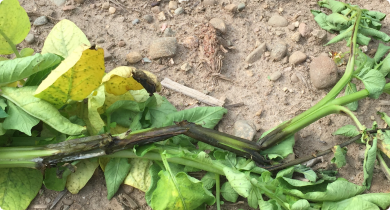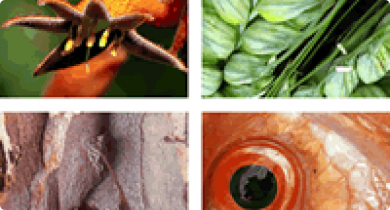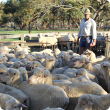Diseases
Diseases have a detrimental effect on plants and animals and impact on market access and agricultural production. Diseases include micro-organisms, disease agents (bacteria, fungi and viruses), infectious agents, parasites and genetic disorders.
Western Australia is free from some of the world's major agricultural and livestock diseases. Biosecurity measures on your property are vital in preventing the spread of diseases.
The Department of Primary Industries and Regional Development provides:
- biosecurity/quarantine measures at the WA border to prevent the entry of plant and animal diseases
- post border biosecurity measures for harmful animal and plant diseases
- advice on widespread diseases present in the state.
For advice on animal and plant diseases search our website, the Western Australian Organism List or contact our Pest and Disease Information Service (PaDIS).
For diagnostic services, please contact our Diagnostic Laboratory Services.
Filter by search
Filter by topic
- Biosecurity (113) Apply Biosecurity filter
- (-) Remove Livestock biosecurity filter Livestock biosecurity
- (-) Remove Biosecurity & quarantine filter Biosecurity & quarantine
- Livestock health & diseases (109) Apply Livestock health & diseases filter
- Livestock disease surveillance (101) Apply Livestock disease surveillance filter
- Livestock & animals (90) Apply Livestock & animals filter
- Livestock species (72) Apply Livestock species filter
- Livestock management (33) Apply Livestock management filter
- Sheep (31) Apply Sheep filter
- Emergency animal disease preparedness (31) Apply Emergency animal disease preparedness filter
- Beef cattle (23) Apply Beef cattle filter
- Dairy cattle (19) Apply Dairy cattle filter
- Management & reproduction (13) Apply Management & reproduction filter
- Poultry & birds (12) Apply Poultry & birds filter
- Pigs (11) Apply Pigs filter
- Goats (9) Apply Goats filter
- Control methods (8) Apply Control methods filter
- Livestock movement & identification (7) Apply Livestock movement & identification filter
- Horses (7) Apply Horses filter
- Feeding & nutrition (7) Apply Feeding & nutrition filter
- Chemicals (7) Apply Chemicals filter
- Quarantine (6) Apply Quarantine filter
- Emergency response (6) Apply Emergency response filter
- Wildlife biosecurity (5) Apply Wildlife biosecurity filter
- Veterinary chemicals (5) Apply Veterinary chemicals filter
- Importing to Western Australia (4) Apply Importing to Western Australia filter
- Importing animals (4) Apply Importing animals filter
- Residues in livestock (3) Apply Residues in livestock filter
- Stockfeed (3) Apply Stockfeed filter
- Preventing residues (3) Apply Preventing residues filter
- Food, export & investment (3) Apply Food, export & investment filter
- Pests (3) Apply Pests filter
- Plant biosecurity (3) Apply Plant biosecurity filter
- Weeds (2) Apply Weeds filter
- Pest animals (1) Apply Pest animals filter
- Mechanical, physical and cultural (1) Apply Mechanical, physical and cultural filter
- Pest insects (1) Apply Pest insects filter
- Water (1) Apply Water filter
- Water management (1) Apply Water management filter
- Livestock research & development (1) Apply Livestock research & development filter
- Invasive species (1) Apply Invasive species filter
- Biosecurity governance (1) Apply Biosecurity governance filter
- Climate, land & water (1) Apply Climate, land & water filter
- Export services (1) Apply Export services filter
- Intrastate movement (1) Apply Intrastate movement filter
- Biosecurity and Agriculture Management Act (1) Apply Biosecurity and Agriculture Management Act filter





